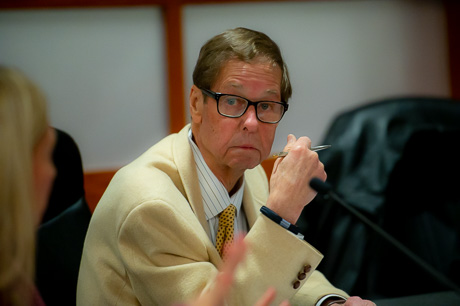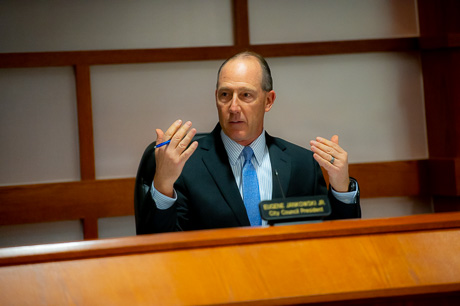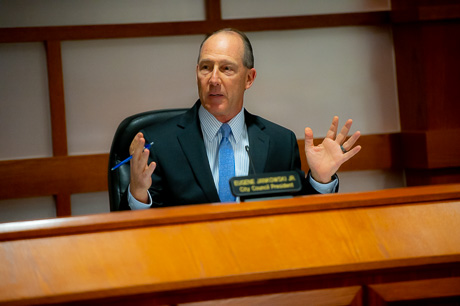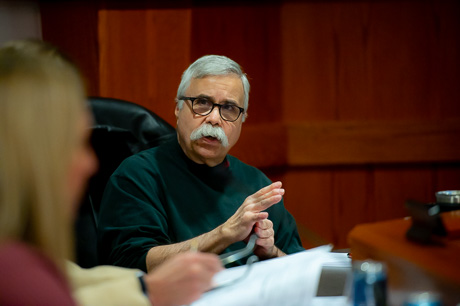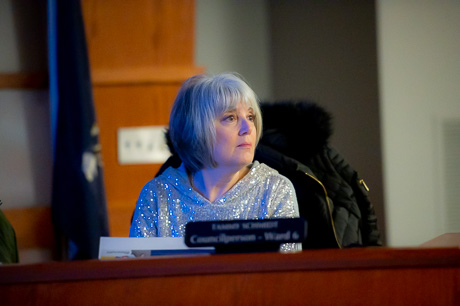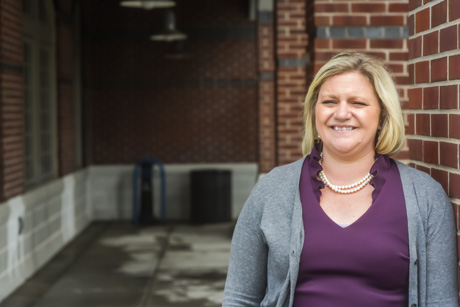An apparent unexpected discussion came up just before City Council’s vote Monday evening to move a proposed tax cap override to a business meeting for final approval to create the required local law.
Council members Bob Bialkowski and Tammy Schmidt each said they would not vote to move the tax cap override for a final vote on March 13, but neither offered amendments to the proposed $33.5 million 2023-24 budget.
Both council members said they had constituents who were not happy about the budget and override, and they, therefore, were not going to vote for it.
“I've heard from many, many constituents that have serious concerns over this. So I don't support it,” Bialkowski said during the group’s conference meeting at City Hall. “But if we run short, we'll have to learn to live with it, just like the average homeowner does. You know, people are really concerned about their taxes.”
Schmidt added that the people she represents are not in favor of the budget, and maybe it’s time to give a little.
“I’m not in favor of it either. My constituents are not in favor of it. And I can't vote yes on something that the people and the citizens of the city don't want, because I feel like I work for them,” she said.
None of those constituents, nor anyone else, showed up to speak during the three public hearings regarding the budget, tax cap override and water rate increase.
City Manager Rachael Tabelski has recommended the override as a way to make budgetary ends meet this year by collecting more than the 2 percent property tax levy of $6.6 million. If council does not approve the override, it will have to cut more than $456,000 from the budget, Tabelski said.
Council President Eugene Jankowski Jr. wondered aloud why, if these two had issues, they did not bring them up during two prior budget workshops. There was also a third one tentatively scheduled, and no one said they wanted or needed it at the time, he said.
“If you had complaints from citizens … Why weren’t any amendments made or attempts to me to address those concerns during the budget process? I mean, we had a month to do this, and if somebody notified me, as a representative, I would have come to the group and said, I have people concerned about this specific part of the budget. And they don't like this part. Is there any way we can reduce that? Or what would it cost to reduce it, there was plenty of time to ask and have those questions answered,” Jankowski said. “As I understand it, from my research, if we were to make the tax cap … we'd be taking money out of necessary savings accounts to cover the costs.”
Schmidt said she only more recently became aware of the county’s revenue distributions, including $392,000 for the city. Why can’t the city put those funds toward the shortfall, she said.
Tabelski explained that auditor recommendations are to keep a fund balance of 15 to 25 percent, and she is not leaning towards pulling any of that out to pay this next year’s bills. As for using the county’s unanticipated revenues, it’s not good practice to use a one-time amount just to meet the tax cap, she said, because then what happens next year?
“We’ll find ourselves right back here,” she said.
The city has gone through lean times, Jankowski said, especially during the pandemic and related drops in revenue. And now is not the time to pick the bones.
“And I'm not happy with inflation, I'm not happy with everything that is going crazy and the costs. And I get a chance to meet with a lot of the department heads. I do this every year. And it's about as lean as I believe we can get it and still provide the public safety and the services people expect for living in this community,” he said. “I think we have a balanced budget, that is a balance between necessary public safety and services that people are accustomed to, as well as trying to keep it as reasonable as possible.”
Councilman John Canale hates to use COVID as an excuse, and it isn’t one, he said, but rather, is a calendar marker. Those were very uncertain financial times that shifted council’s perspective, he said.
“And if I remember, right, we as a board, although Tammy wasn't here at the time, I do think we as a board decided, you know what, we just have to react to the environment as it happens to us," Canale said. "So we're going to do it on a year-to-year basis. Yes, we have to look down the road as we always have, that we need to survive on a year-to-year basis right now.
"It's just like many municipalities are in the same position that we're in. If I remember it, we all kind of casually agreed that, yeah, we'll just take this thing a year at a time until we started to get out of it. You know, get into the clearing a little bit. Well, we're not even clear,” he added. “We are all very opposed, I think, to overriding the tax cap. I certainly don't want to have to do it. When it means that we can still continue to provide all the services like you say — that we have grown accustomed to having provided for us as taxpayers — and our only choice is either to drain funds that we shouldn't really be draining that we've worked so hard to build up or override the tax cap, which is nothing that any one of us put into place. That's our state that has required that of us. This is one of those years where we're still not in the clearing yet. I think that was the only decision. That was a viable decision.
“I feel pretty proud to say we’ve maintained the tax rate,” he said.
To the contrary, Schmidt doesn’t feel proud of the status quo, she said, not when other municipalities have lowered their tax rates. The city property tax rate is $8.94 per $1,000 assessed value, and that’s to remain the same.
“Can we ever just throw a bone to the citizens?” she said. “They are on the top of the organizational chart; we work for them.”
Council voted 6 to 2 in favor of moving the budget and override to the March 13 business meeting for a final vote. Members Kathy Briggs, Al McGinnis, Rich Richmond, Paul Viele, Canale, and Jankowski voted yes to no votes cast by Bialkowski and Schmidt. All members agreed to move the proposed water rate increase of 30 cents per 1,000 gallons to the same meeting for a vote.
File Photos of Bob Bialkowski, Eugene Jankowski Jr., John Canale and Tammy Schmidt, by Howard Owens.
